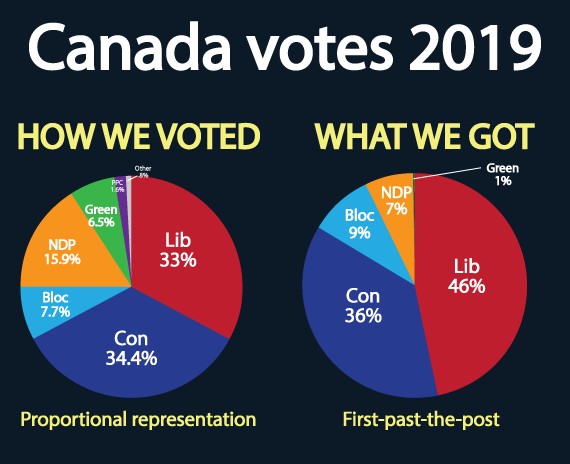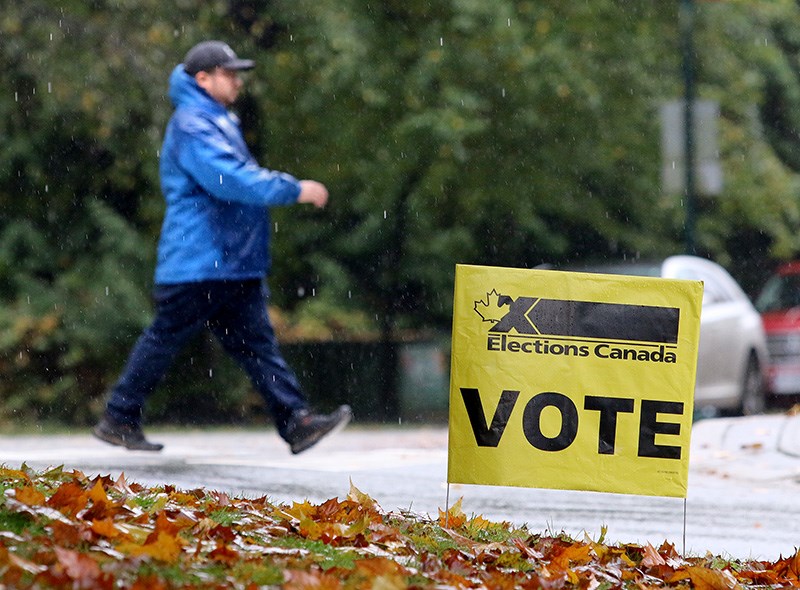The aftermath of Monday's election includes concerns that Canadians are divided on who should lead the country.
And nowhere is the split between party support more illustrative than in the riding of Port Moody-Coquitlam, where Liberal, NDP and Conservative voters finished Election Day in a near three-way tie, according to Citizens for STV, a group advocating for a system of proportional representation known as single transferable vote.
“Port Moody-Coquitlam is probably the best example of why we need electoral reform in Canada,” it wrote in a Facebook post the morning after the election.
During the 2015 election cycle, the Trudeau government made electoral reform one of its campaign promises, stating that election would be the last held under the first-past-the-post system. But by February 2017, his government reneged on the campaign promise, with Liberal Democratic Institutions Minister Karina Gould saying saying there wasn’t enough support among Canadians to make such a sweeping change.
Four years later, with the Liberal party has been reduced to a minority government, Citizens for STV is just one of several advocates for electoral reform that are renewing a call for proportional representation.
“First-past-the-post has cheated voters in every province,” said an email to The Tri-City News from the cross-partisan group Fair Vote Canada.
Quoting an Angus Reid poll in which 77% of Canadians said they support a move towards elections that award seats based on some form of proportional representation, the group is calling on all parties to create an independent “Citizens Assembly of Electoral Reform” that would guide the implementation of such a system in time for the 2023 election.
Fair Vote Canada highlighted how no party should be satisfied with the results of an election under a voting regime that divides the country by concentrating party power in regional strongholds.

For the Conservatives, that has meant losing an opportunity to form a government despite winning the popular vote. Across the aisle, Liberal candidates were shut out of Alberta and Saskatchewan but won 21% of the vote in those provinces, meaning under a proportional system, they would have representation in each of Canada’s provinces.
But the biggest losers under the current system are the smaller parties, as first-past-the-post skews results in favour of the two big parties, wrote Fair Vote Canada in a press release.
“The voting system has robbed more than half of the NDP voters of fair representation. They cast 16% of the votes, yet elected only 7% of the MPs,” it wrote. “Still worse, Green Party voters cast 6% of the votes but elected only three MPs, when fair representation would have been 22 MPs.”




